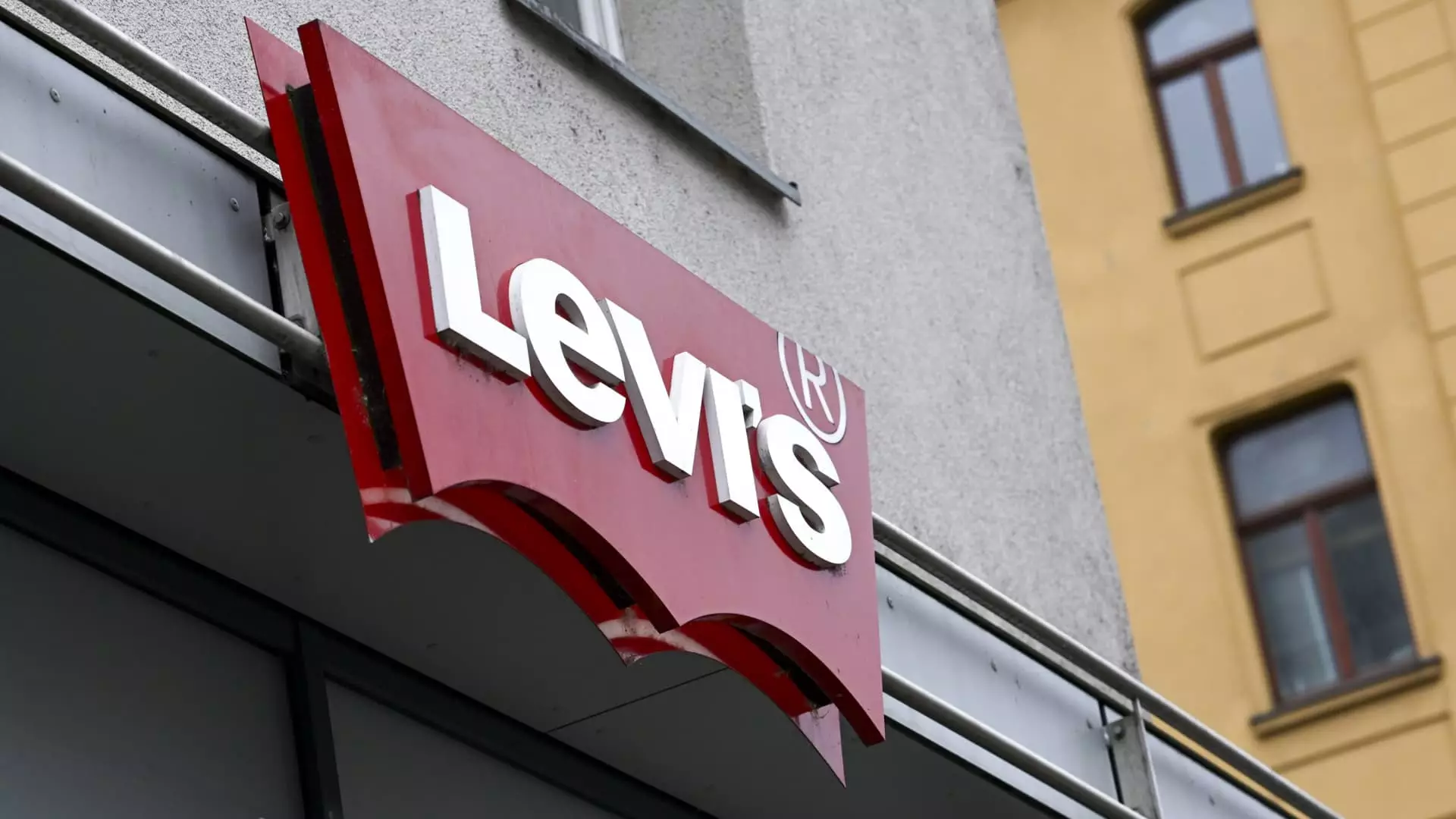Levi Strauss’s recent decision to sell Dockers to Authentic Brands Group for $311 million marks a significant chapter in the narrative of brand evolution. This move not only represents a financial transaction but also unveils the underlying implications of changing consumer tastes and corporate strategy. By shedding Dockers, Levi’s is indicating a deeper realignment of its priorities, aiming to craft a more focused identity in an increasingly competitive fashion landscape. While Levi’s CEO Michelle Gass extols the virtues of this deal as a pathway to “maximize value,” one must analyze whether this newfound strategy is a genuine step forward or a misguided retreat in the face of shifting cultural dynamics.
Cultural Dissonance and the Fate of Khakis
The decline in popularity of khakis reflects more than mere fashion trends; it speaks to a broader cultural shifting away from formal attire towards more casual, versatile wear. Dockers, introduced in the mid-1980s as a fashion-forward alternative to denim, had its heyday but now finds itself overshadowed by the resurgence of jeans and the rise of athleisure. This evolution goes beyond color palettes and textiles; it is emblematic of a generation increasingly oriented towards comfort and casual wear over structured attire. Levi’s decision to divest from Dockers can be perceived not just as a business maneuver, but as an inability to creatively revitalize a legacy brand that has lost its resonance in contemporary style.
Financial Motivations: More Than Just a Brand Sale
The financial structure of this sale suggests that Levi’s confidence in Dockers’ standalone performance is waning. While the potential revenue of up to $391 million down the line sounds appealing, it illustrates a rather bleak outlook for the brand in the short term. The internal corporate decision-making that leads to prioritizing direct-to-consumer sales models signals Levi’s concern for immediate profitability over long-term brand strength. With only $67 million in reported revenue tied to Dockers in its last quarterly report, one cannot help but ponder: is this a sign of a brand on life support or a lost cause?
It is equally telling that Levi’s has identified Authentic Brands Group—a firm adept at rapid brand monetization through licensing—as the right steward for Dockers. This aligns with a wider trend where companies relinquish their brand ownership in favor of strategic partnerships, theorizing that others can breathe life into a brand’s second chapter. However, this raises questions about long-term brand integrity and whether this transaction represents a betrayal of Dockers’ legacy.
International Market Potential: A Double-Edged Sword
Authentic Brands Group’s assertion that Dockers still possesses significant potential in international markets should not be overlooked. However, one must consider whether this growth is achievable without the requisite cultural relevance in those regions. The company’s plans to expand Dockers into Latin America, Europe, the Middle East, and Asia rely heavily on leveraging existing relationships with local operators. While localization strategies can indeed rejuvenate a waning brand image, they can equally produce disjointed messaging that dilutes brand identity.
Moreover, the notion that few brands “own a category” as effectively as Dockers implies both opportunity and responsibility. It places Authentic in a position where they must either infuse purpose into Dockers’ identity or risk leaving it as a relic of yesteryears’ fashion. The weight of expectation looms large; can a heritage brand redefined through contemporary lens attract a new generation without losing sight of its original ethos?
The Myth of Brand Management: Future Uncertain
The allure of brand management firms is their promise to revitalize lagging entities, but this approach can often feel like a Band-Aid on a larger wound. By fragmenting brand ownership, companies like Levi’s risk losing authentic storytelling, a key ingredient in consumer connection. The challenge now lies in whether Dockers can emerge from its old skin into something more relevant—or if it will merely shift from one corporate entity’s back pocket to another, falling deeper into the abyss of corporate mediocrity.
As Levi’s cedes control over a brand they once pioneered, one is left to ponder if this is simply a necessary sacrifice in the relentless pursuit of profitability, or a lapse into complacency, potentially sealing the fate of Dockers as an afterthought in fashion history. In a world where authentic narratives drive consumer loyalty, the implications of such corporate decisions weigh heavier than mere numbers on a balance sheet.

Leave a Reply